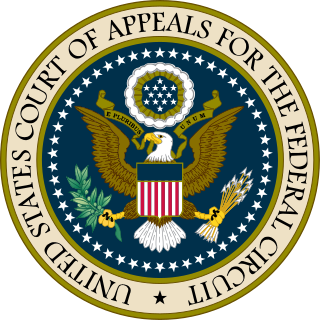 |
|---|
| |
List of final courts of appeal in Canada. For details on the court system, see Canadian court system.
 |
|---|
| |
List of final courts of appeal in Canada. For details on the court system, see Canadian court system.

An appellate court, commonly called a court of appeal(s), appeal court, court of second instance or second instance court, is any court of law that is empowered to hear an appeal of a trial court or other lower tribunal. In much of the world, court systems are divided into at least three levels: the trial court, which initially hears cases and reviews evidence and testimony to determine the facts of the case; at least one intermediate appellate court; and a supreme court which primarily reviews the decisions of the intermediate courts, often on a discretionary basis. A particular court system's supreme court is its highest appellate court. Appellate courts nationwide can operate under varying rules.
In the United States, a state supreme court is the highest court in the state judiciary of a U.S. state. On matters of state law, the judgment of a state supreme court is considered final and binding in both state and federal courts.
In the United States, a state court has jurisdiction over disputes with some connection to a U.S. state. State courts handle the vast majority of civil and criminal cases in the United States; the United States federal courts are far smaller in terms of both personnel and caseload, and handle different types of cases.

The United States courts of appeals or circuit courts are the intermediate appellate courts of the United States federal judiciary. The courts are divided into 13 circuits that each hear appeals from the district courts within their borders, or in some instances from other designated federal courts and administrative agencies. Appeals from the circuit courts are taken to the Supreme Court of the United States. The district and appellate courts and the Supreme Courts are all authorized under Article Three of the United States Constitution.

The Supreme Court of Canada is the highest court in the judicial system of Canada. It comprises nine justices, whose decisions are the ultimate application of Canadian law, and grants permission to between 40 and 75 litigants each year to appeal decisions rendered by provincial, territorial and federal appellate courts. The Supreme Court is bijural, hearing cases from two major legal traditions and bilingual, hearing cases in both official languages of Canada.
In law, certiorari is a court process to seek judicial review of a decision of a lower court or government agency. Certiorari comes from the name of an English prerogative writ, issued by a superior court to direct that the record of the lower court be sent to the superior court for review. The term is Latin for "to be made certain", and comes from the opening line of such writs, which traditionally began with the Latin words "Certiorari volumus...".
In common law systems, a superior court is a court of general jurisdiction over civil and criminal legal cases. A superior court is "superior" in relation to a court with limited jurisdiction, which is restricted to civil cases involving monetary amounts with a specific limit, or criminal cases involving offenses of a less serious nature. A superior court may hear appeals from lower courts.
The chief justice is the presiding member of a supreme court in many countries with a justice system based on English common law, such as the High Court of Australia, the Supreme Court of Canada, the Supreme Court of Ghana, the Court of Final Appeal of Hong Kong, the Supreme Court of India, the Supreme Court of Ireland, the Supreme Court of Japan, the Supreme Court of Nepal, the Supreme Court of New Zealand, the Supreme Court of Nigeria, the Supreme Court of Pakistan, the Supreme Court of the Philippines, the Supreme Court of Singapore, the Supreme Court of the United States, and provincial or state supreme courts/high courts.
A puisne judge or puisne justice is a dated term for an ordinary judge or a judge of lesser rank of a particular court.
The court system of Canada forms the judicial branch of government, formally known as "The Queen on the Bench", which interprets the law and is made up of many courts differing in levels of legal superiority and separated by jurisdiction. Some of the courts are federal in nature, while others are provincial or territorial.

The United States Court of Appeals for the Federal Circuit is a United States court of appeals headquartered in Washington, D.C. The court was created by Congress with passage of the Federal Courts Improvement Act of 1982, which merged the United States Court of Customs and Patent Appeals and the appellate division of the United States Court of Claims, making the judges of the former courts into circuit judges. The Federal Circuit is particularly known for its decisions on patent law, as it is the only appellate-level court other than the Supreme Court with the jurisdiction to hear patent case appeals.

The District of Columbia Court of Appeals is the highest court of the District of Columbia, in the United States. Established in 1970, it is equivalent to a state supreme court, except that its authority is derived from the United States Congress rather than from the inherent sovereignty of the states. The court is located in the former District of Columbia City Hall building at Judiciary Square. The D.C. Court of Appeals should not be confused with the District's federal appellate court, the United States Court of Appeals for the District of Columbia Circuit. The D.C. Court of Appeals and the Superior Court of the District of Columbia comprise the District's local court system.
The federal judiciary of the United States is one of the three branches of the federal government of the United States organized under the United States Constitution and laws of the federal government. Article III of the Constitution requires the establishment of a Supreme Court and permits the Congress to create other federal courts and place limitations on their jurisdiction. Article III states that federal judges are appointed by the president with the consent of the Senate to serve until they resign, are impeached and convicted, or die.

A law clerk or a judicial clerk is an individual—generally an attorney—who provides direct assistance and counsel to a judge in making legal determinations and in writing opinions by researching issues before the court. Judicial clerks often play significant roles in the formation of case law through their influence upon judges' decisions. Judicial clerks should not be confused with legal clerks, court clerks, or courtroom deputies who provide secretarial and administrative support to attorneys and/or judges.

A supreme court is the highest court within the hierarchy of courts in many legal jurisdictions. Other descriptions for such courts include court of last resort, apex court, and highcourt of appeal. Broadly speaking, the decisions of a supreme court are not subject to further review by any other court. Supreme courts typically function primarily as appellate courts, hearing appeals from decisions of lower trial courts, or from intermediate-level appellate courts.
The Federal Reporter is a case law reporter in the United States that is published by West Publishing and a part of the National Reporter System. It begins with cases decided in 1880; pre-1880 cases were later retroactively compiled by West Publishing into a separate reporter, Federal Cases. The fourth and current Federal Reporter series publishes decisions of the United States courts of appeals and the United States Court of Federal Claims; prior series had varying scopes that covered decisions of other federal courts as well. Though the Federal Reporter is an unofficial reporter and West is a private company that does not have a legal monopoly over the court opinions it publishes, it has so dominated the industry in the United States that legal professionals, including judges, uniformly cite to the Federal Reporter for included decisions. Approximately 30 new volumes are published each year.

In law, an appeal is the process in which cases are reviewed by a higher authority, where parties request a formal change to an official decision. Appeals function both as a process for error correction as well as a process of clarifying and interpreting law. Although appellate courts have existed for thousands of years, common law countries did not incorporate an affirmative right to appeal into their jurisprudence until the 19th century.

The Greenhouse Gas Pollution Pricing Act is a Canadian federal law establishing a set of minimum national standards for carbon pricing in Canada to meet emission reduction targets under the Paris Agreement. It was passed as Part 5 of the Budget Implementation Act, 2018, No. 1 – an omnibus budget bill – during the 42nd Parliament of Canada. The law came into force immediately upon receiving royal assent on June 21, 2018.